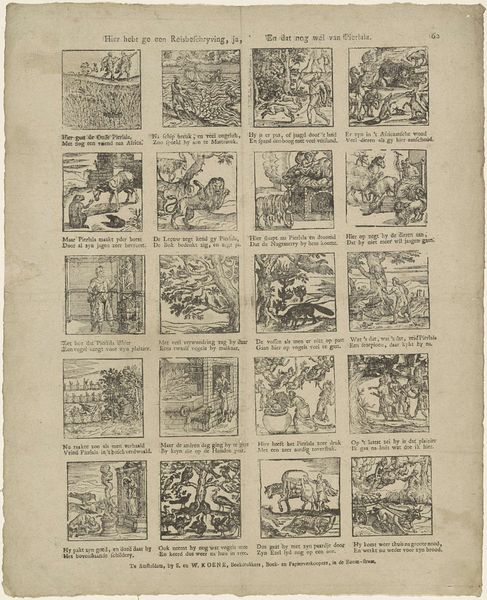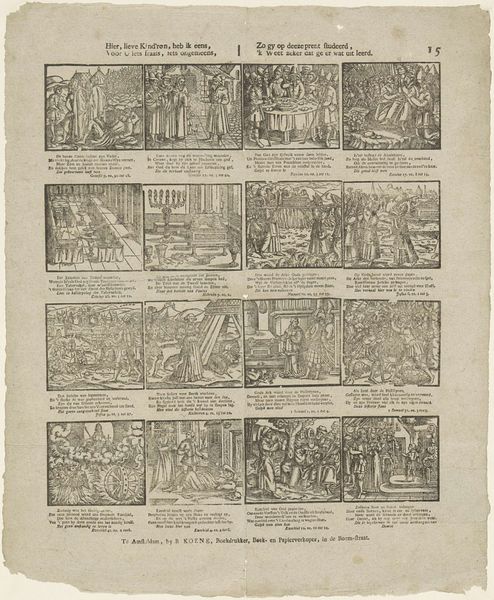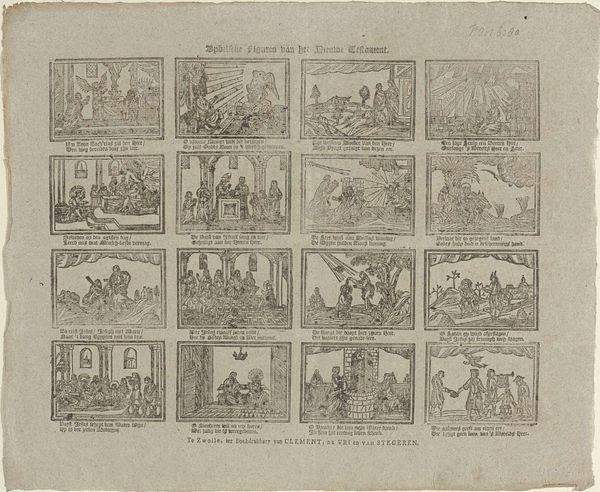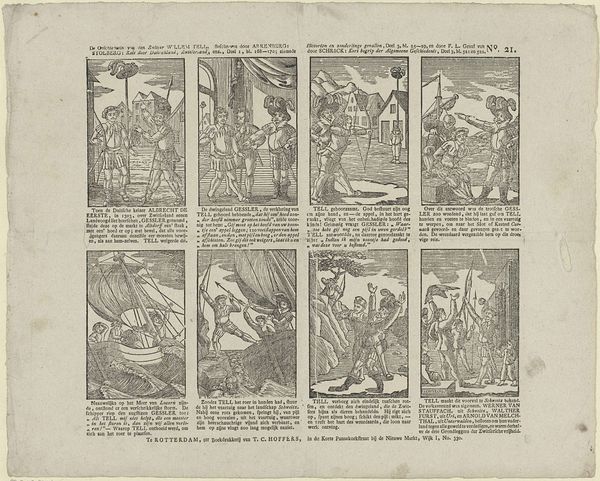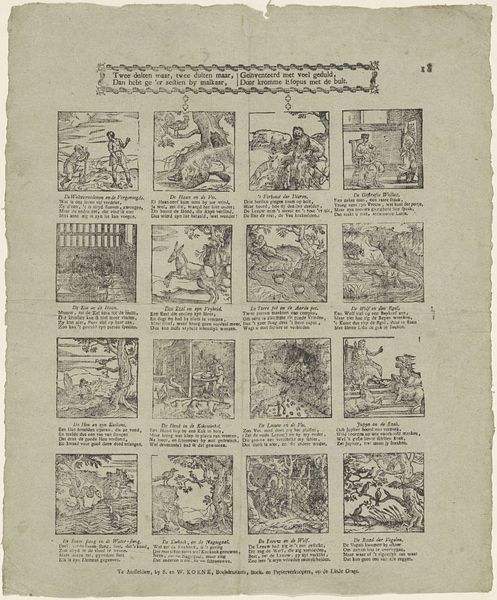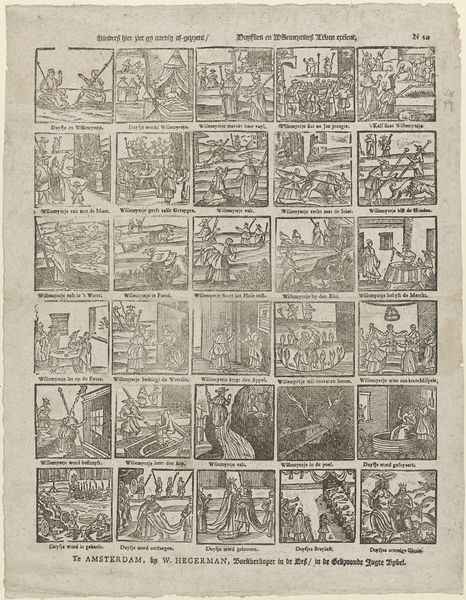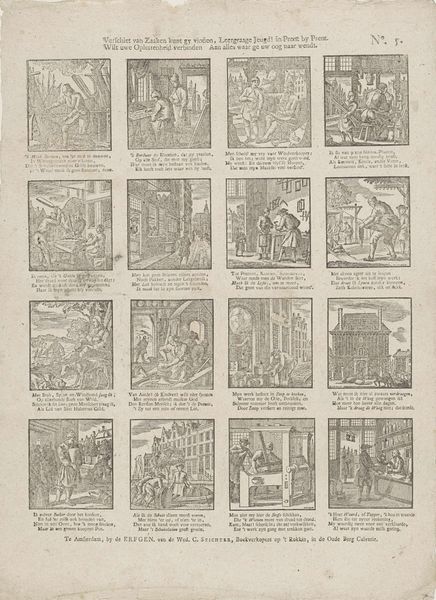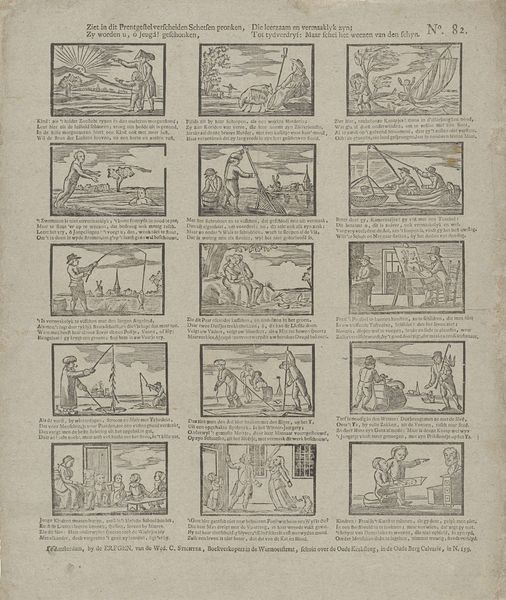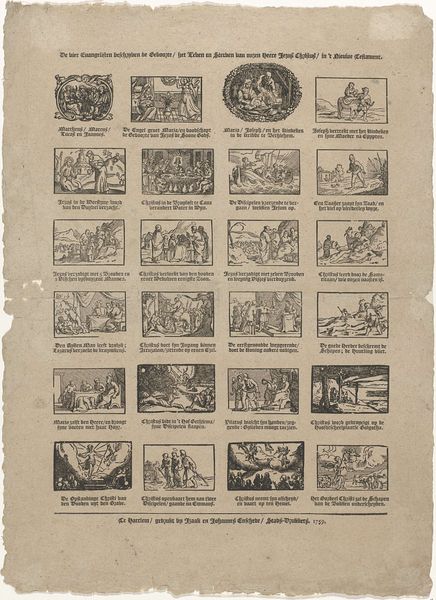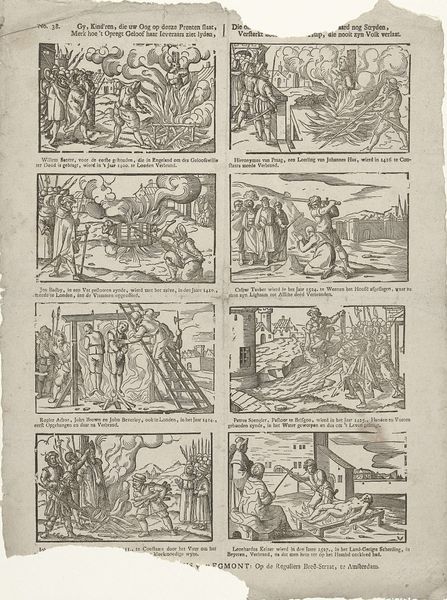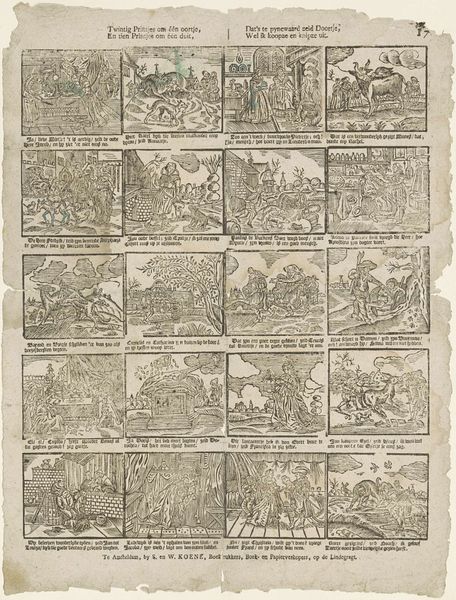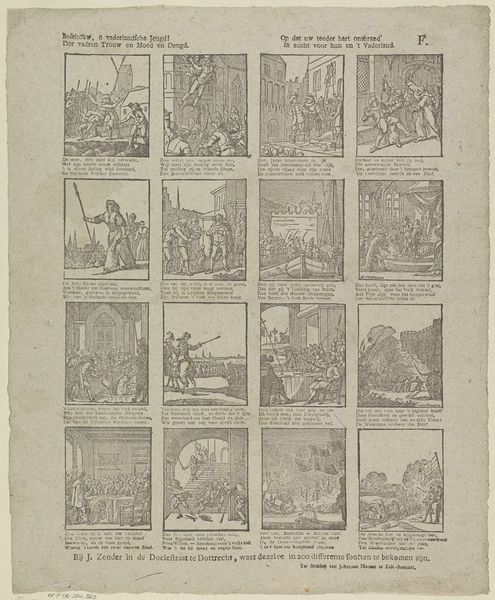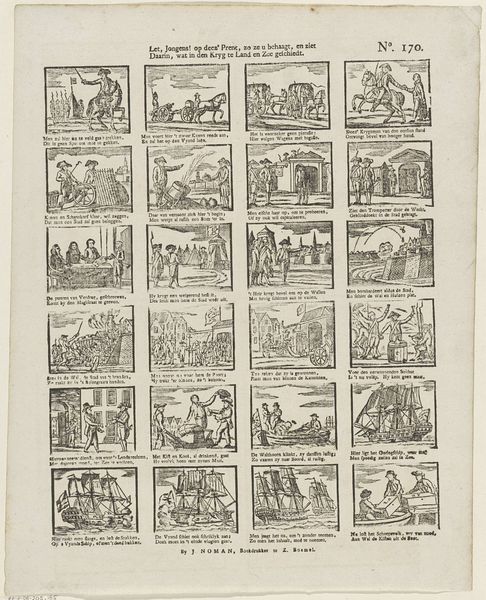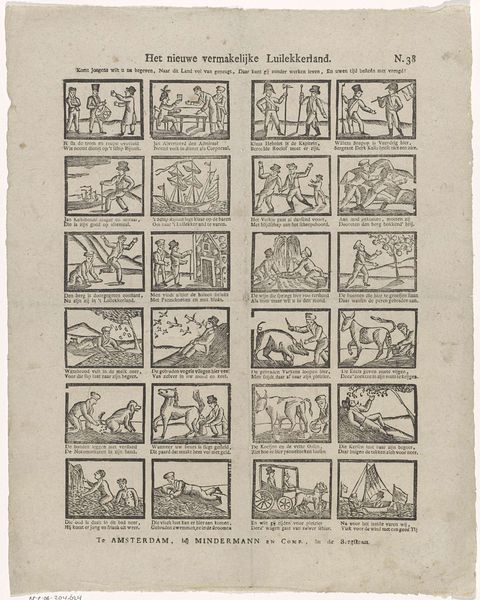
print, engraving
#
narrative-art
# print
#
engraving
Dimensions: height 334 mm, width 412 mm
Copyright: Rijks Museum: Open Domain
Christoffel van Sichem created these bible illustrations using woodcut, a popular medium at the time, in the Netherlands sometime between 1642 and 1698. The images would most likely have been commissioned for the purpose of publishing and printing, as can be gathered from the text at the bottom. Prints like these reflect the importance of religion in the Netherlands during the 17th century, and the rise of the printing press as a means of spreading religious ideas. They also demonstrate the complex relationship between art and commerce, as artists like Sichem were often employed by publishers to create images that would appeal to a mass audience. Here the publisher is named as JOH. SEYDEL, a bookseller on the corner of Koningstraat in Leeuwarden. Art historians are interested in such details, as the commercial history of an artwork is an important component in understanding its wider social and cultural context. By examining archival records and other historical sources, we can learn more about the people who created and consumed art in the past, and how they were shaped by their social and institutional context.
Comments
No comments
Be the first to comment and join the conversation on the ultimate creative platform.
